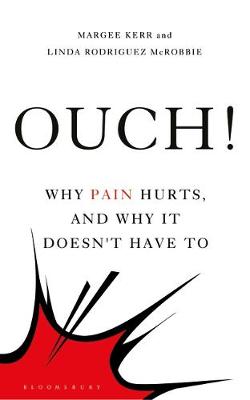Reviewed by Jeff Sexton on
Reading updates
- Started reading
- 25 November, 2020: Finished reading
- 25 November, 2020: Reviewed

Pain seems like a fairly straightforward experience -- you get hurt and it, well, hurts. But how would you describe it? By the number of broken bones or stitches? The cause -- the crowning baby, the sharp knife, the straying lover? What does a 7 on a pain scale of 1 to 10 even mean?
Pain is complicated. But most of the time, the way we treat pain is superficial -- we avoid it at all costs, or suppress it, usually with drugs. That's left us hurting all the more.
Through in-depth interviews, investigation into the history of pain and original research, Ouch! paints a new picture of pain as a complex and multi-layered phenomenon. Authors Margee Kerr and Linda McRobbie Rodriguez tell the stories of sufferers and survivors, courageous kids and their equally brave parents, athletes and artists, people who find healing and pleasure in pain and scientists pushing the boundaries of pain research, challenging the notion that all pain is bad and harmful. They reveal why it matters who defines pain and how history, science, and culture shape how we experience it. In asking "What is pain?", Ouch! dismantles prevailing assumptions about pain and uncovers a truth that we instinctively know but seem to have lost in a misguided quest for a state of perfect painlessness: Not all pain is bad, not all pain should be avoided. And in the right context, pain can even feel good.
Understanding how pain works and why we need it, how it is expressed, how we think and talk about it can help us lay the foundation to build a healthier relationship with it. Once we understand how pain is made, we can remake it.